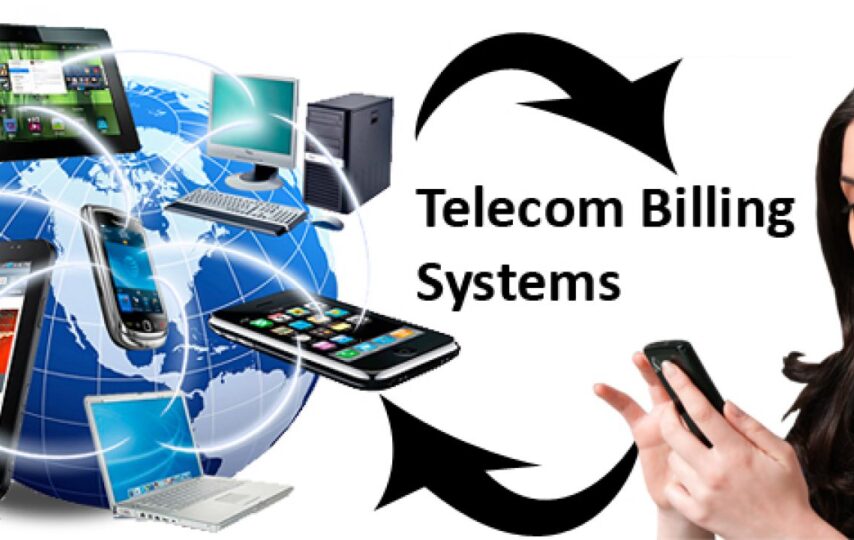Telecommunications is a vital part of modern society. It’s hard to imagine life without the Internet, mobile, and telephone services. Likewise, businesses depend on telecommunications services for various functions and processes. But like other basic utilities, telecom services come for a price. About $1.5 billion is expected to be spent globally on telecom services in 2020. The disruption caused by the coronavirus pandemic has further increased the dependence on and demand for telecom services. To ensure that every penny spent is worth it, many companies utilize a telecom billing system.
Telecom Billing Systems for Various Businesses
Telecom billing systems are central to the financial operations of mobile, Internet, telephone, and cable TV providers. These IT solutions track the usage of every subscriber down to the last byte. The system calculates, creates, and issues billing statements to subscribers online. Various features and functions can be incorporated into the software, such as payment options, managing unpaid bills, and other monetary resources.
Although telecom billing solutions are most commonly used by companies in the telecommunications industry, any business that uses telecom services can benefit from this software. It can help manage telecom usage, expenses, and costs, such as telephone, data, and mobile services. The IT system can generate insightful data to help you make business decisions. This is crucial in reducing costs and improving the profits of the business.
Aside from tracking expenses, the system can also integrate unique functions that are custom-made to support the specific needs of a company. For example, it can put data caps on certain users to limit their usage.
Like other IT solutions, the use of telecom billing systems comes with benefits and drawbacks. Here we take a look at the pros and cons of telecom billing solutions.
Pros of Using Telecom Billing Systems
Eliminate errors
According to developers of enterprise billing systems, Kansys, billing solutions can significantly reduce or eliminate common billing errors. These errors can cost your business lost revenues. Some of the most common causes of errors are due to manual data entry errors, inconsistent data, and bad communication.
Continuity of financial processes
Using different software solutions for various financial processes increases the risk of errors and time-consuming. By integrating different financial activities into a unified program, you can reduce these issues and ensure seamless operations. This can also improve data management as the entire team can access all information within a single platform.
Customer retention
Billing disputes remain the most common complaint against telecom providers. Incorrect, delayed, and problems with billing can lead to customer dissatisfaction. Telecom billing systems ensure efficient and accurate billing, thereby improving customer satisfaction.
Improves transparency
Billing systems promote transparency since it provides a comprehensive and clear audit trail of subscriber usage. It provides details of consumption as well as payment. Since data is easily accessible, customer’s concerns and questions can be quickly addressed. This allows customer support to providing immediate solutions to subscriber issues. This avoids any dispute and thereby reducing friction between telecom employees and consumers.
Automated billing calculations
Due to the tough competition in the market, charges, and rates in the telecom industry changes very rapidly. It can be difficult to make necessary adjustments if you don’t have a telecom billing system. Using IT solutions, you can easily revise the rates, packages, and products. It also enables you to apply rebates or discounts. Automating invoicing calculations saves time and ensures accuracy.
Cons of Telecom Billing Systems
Rapidly changing trends in the telecom industry
The telecommunications industry is evolving at a rapid pace. If you have a rigid billing system, your invoicing processes – and your business as a whole – might get tied to it. This might limit your ability to grow with the market. Therefore, it is crucial to choose a flexible system that can adapt to changing industry trends.
Costly
Billing systems entails a major investment. These IT systems often require a major review of your business processes to ensure homogeneity. The developers create software that streamlines invoicing processes and integrates the needs of the business.
Security risk
Like any other software program, the use of billing solutions comes with safety and security risks. Mass-produced IT solutions are more prone to malware and spyware. Compromising consumer data can adversely affect your business reputation.
Bookkeeping concerns
Although billing systems make data easily accessible, it can be an added hassle when bookkeeping time comes. You might need to print out invoices and reconcile with your financial records when tax time comes. Paper invoices are still easier to file.
Final Thoughts
Although billing systems come with perks and drawbacks, the success of the system depends on how a company utilizes and maximizes the IT solution. All said, deploying a telecom billing system proves beneficial for businesses. It guarantees that every byte of information used is well accounted for. This is vital not just to telecom providers but to every company that depends on telecommunications. If you are unsure whether your company will benefit from this IT solution, hopefully, this list of pros and cons has helped you make the right decision.







